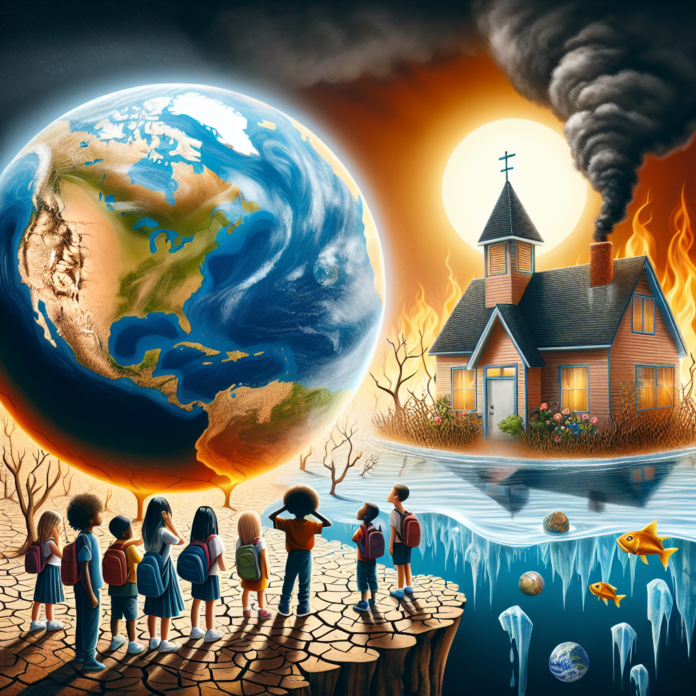UNICEF Alerts on Climate Change Impacting Children’s Education
UNICEF Warns Climate Change Threatens Children’s Education
Climate change is increasingly recognized as a significant threat to education for children around the globe, according to a recent report from UNICEF. The organization emphasizes that natural disasters, extreme weather events, and shifting climate patterns disrupt schooling, diminish educational quality, and hinder children’s ability to learn effectively.
Impact of Climate Change on Education
UNICEF’s findings highlight that millions of children are at risk of losing access to education due to climate-related disruptions. Natural disasters such as floods, hurricanes, and wildfires can lead to school closures, while persistent droughts may force families to relocate, further displacing children from their educational environments.
Moreover, the psychological toll of climate change can adversely affect students’ mental health and learning capabilities. Children exposed to climate-related disasters often experience trauma and anxiety, which can impede their academic performance and overall well-being.
Global Disparities in Education Access
The report underscores that vulnerable populations, particularly in low-income countries, are disproportionately affected by climate change’s impact on education. Many schools in these regions lack infrastructure to withstand extreme weather conditions, making them more susceptible to damage and disruption.
Additionally, the digital divide exacerbates the situation, as remote learning becomes an essential tool during crises. Children in areas without reliable internet access or technological resources face significant barriers to continuing their education during disruptions.
Call to Action
UNICEF urges governments and policymakers to take urgent action to address the intersection of climate change and education. This includes investing in resilient school infrastructure, developing emergency preparedness plans, and integrating climate education into curricula to prepare students for the challenges ahead.
Furthermore, UNICEF advocates for international cooperation to ensure that all children, regardless of their geographic or socioeconomic status, have access to quality education and the resources necessary to thrive in a changing climate.
Conclusion
As climate change continues to pose a formidable challenge, it is imperative that the global community prioritizes the protection of children’s education. By recognizing the links between climate change, education, and equity, we can work towards a sustainable future where all children have the opportunity to learn and grow, regardless of the environmental challenges they face.


